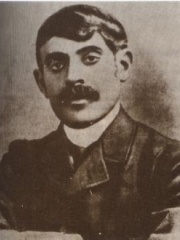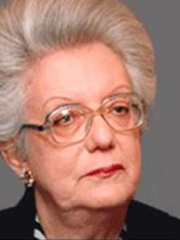


The Most Famous
LAWYERS from Egypt
This page contains a list of the greatest Egyptian Lawyers. The pantheon dataset contains 136 Lawyers, 3 of which were born in Egypt. This makes Egypt the birth place of the 9th most number of Lawyers behind Bangladesh, and Switzerland.
Top 3
The following people are considered by Pantheon to be the most legendary Egyptian Lawyers of all time. This list of famous Egyptian Lawyers is sorted by HPI (Historical Popularity Index), a metric that aggregates information on a biography's online popularity.

1. Al-Tahawi (853 - 935)
With an HPI of 67.02, Al-Tahawi is the most famous Egyptian Lawyer. His biography has been translated into 23 different languages on wikipedia.
Abū Jaʿfar Aḥmad aṭ-Ṭaḥāwī (Arabic: أَبُو جَعْفَر أَحْمَد ٱلطَّحَاوِيّ, romanized: Abū Jaʿfar Aḥmad aṭ-Ṭaḥāwī) (853 – 5 November 933), commonly known as at-Tahawi (Arabic: ٱلطَّحَاوِيّ, romanized: aṭ-Ṭaḥāwī), was an Egyptian Arab Hanafi jurist and Traditionalist theologian. He studied with his uncle al-Muzani and was a Shafi'i jurist, before then changing to the Hanafi school. He is known for his work al-'Aqidah al-Tahawiyyah, a summary of Sunni Islamic creed which influenced Hanafis in Egypt.

2. Qasim Amin (1863 - 1908)
With an HPI of 62.18, Qasim Amin is the 2nd most famous Egyptian Lawyer. His biography has been translated into 27 different languages.
Qasim Amin (pronounced [ˈʔæːsem ʔæˈmiːn], Egyptian Arabic: قاسم أمين; 1 December 1863 – 12 April 1908) was an Egyptian jurist, Islamic Modernist and one of the founders of the Egyptian national movement, as well as a co-founder of Cairo University. Qasim Amin was one of the Arab world's "first feminists" though his "feminism" has been the subject of scholarly controversy. His advocacy of greater rights for women catalyzed debate over women's issues in the Arab world. He criticized veiling, seclusion, early marriage, and lack of education of Muslim women. Greatly influenced by the works of Darwin, Amin argued for the modernization of Egypt along European lines. He was also influenced by the works of Herbert Spencer and John Stuart Mill who argued for equality of the sexes. Amin believed that heightening women's status in society must greatly improve the nation. Amin blamed traditional Moslems for Egyptian women's oppression, saying that the Quran does not teach this subjugation but rather supports women's rights. His beliefs were often supported by Quranic verses.

3. Aisha Rateb (1928 - 2013)
With an HPI of 51.99, Aisha Rateb is the 3rd most famous Egyptian Lawyer. Her biography has been translated into 17 different languages.
Aisha Rateb (Arabic: عائشة راتب; 22 February 1928 – 4 May 2013) was an Egyptian lawyer, politician, and Egypt's first female ambassador. She also was a professor of international law at Cairo University.
People
Pantheon has 3 people classified as Egyptian lawyers born between 853 and 1928. Of these 3, none of them are still alive today. The most famous deceased Egyptian lawyers include Al-Tahawi, Qasim Amin, and Aisha Rateb.

